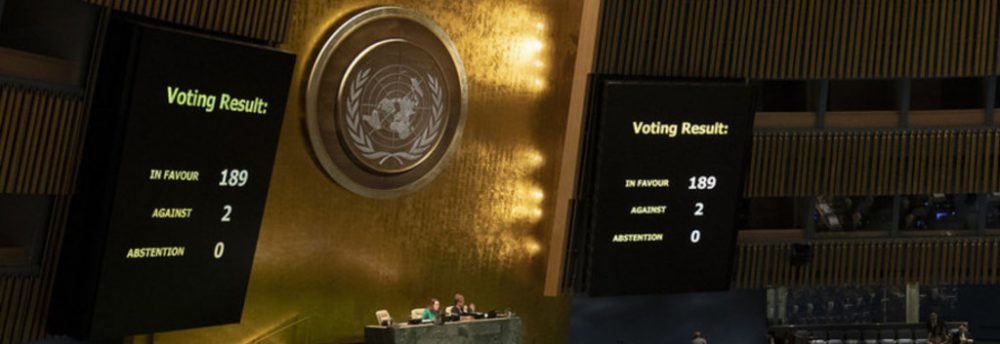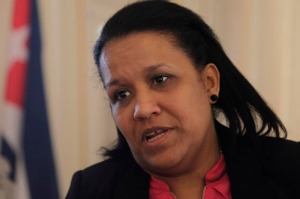Source: Granma
September 28 2016
by Yenia Silva Correa | informacion@granma.cu
“If the United States were willing to sell the materials and supplies we need to successfully develop our education system, Cuba would save $1,245,000 USD on shipping fees alone.

The US blockade prevents Cuba from obtaining state-of-the art applications and IT resources. Photo: Jose M. Correa
The efforts and political will of the Cuban state to continue to provide free and universal education to the people are laudable, above all given the limitations it faces as a result of the economic, commercial and financial blockade unilaterally imposed by the United States on the island for over five decades.
The aggressiveness of this policy markedly increased from April, 2015 through March, 2106; affecting in particular the export of educational services from Cuba to other countries, according to Dr. Paul Torres Fernández Ministry of Education (Mined) spokesman, during a recent press conference.
Dr. Torres highlighted losses associated with having to operate in distant markets, one of the areas where the negative impact of the blockade is most evident, with higher shipping fees raising costs for the island.
Citing an example he noted that transporting a 20 foot container from China costs Cuba approximately 3,200 U.S. dollars. However, the same operation from the U.S. would cost the island only 1,300 dollars.
“If the United States were willing to sell the materials and supplies we need to successfully develop our education system, Cuba would save $1,245,000 USD on shipping fees alone,” stated Torres.
Modern laboratories and audio-visual equipment
The blockade causes substantial damage to the sphere of educational services. For example, language schools work on the basis of the National System of Information for Education and Mined Central Archive, but lack modern laboratories and audio-visual equipment.
In order to highlight the extraterritorial nature of U.S. economic sanctions, Torres reported that a notable decrease in purchases, exchanges, and donations of texts, scientific papers and educational documents has been seen, given restrictions on publishing houses and institutions in third countries.
Use of the US dollar
“Despite remarks made by U.S. President Barack Obama, stating that Cuba can now use the dollar in international transactions, this continues to be an unresolved problem, directly impacting exchanges and purchases,” highlighted the Mined spokesman.
Another negative effect of the stifling economic policy toward the island is the reduction of publishing plans for school libraries and educational information centers.
“We can barely produce workbooks. The entire bibliography that has been published in previous years in regards to postgraduate and scientific education, of vital importance to the continued development of our teachers, has been severely inhibited,” noted Dr. Torres.
Technical-Vocational Education
The impact of the blockade has been acutely felt in Technical-Vocational Education from April 2015, through March 2016, especially given the need to renew and repair tools and machines.
The specialist noted that institutions offering Mechanics courses have been unable to replace out-dated equipment given the lack of sufficient resources to purchase them.
A similar situation is affecting students enrolled in Chemistry, the Sugar Cane Industry, and Food Industry courses, who are prevented from developing their skills to the full, due to insufficient equipment and devices.
Biology and chemistry laboratories
In regards to difficulties associated with purchasing laboratory units for Technical Education, the Mined spokesman stated, “The country has made extraordinary efforts to buy biology and chemistry laboratories. We have covered an important number of pre-universities in the country. However, we have not been able to reach all high-schools. If we take an overall look at high-school education, we have barley met a third of laboratory requirements.”
The U.S. government’s aggressive economic policy toward Cuba also negatively impacts Special Education, although the country serves all children and adolescents with special learning needs.
The financial sphere
The blockade also causes damages in the financial sphere. Payments relating to international collaboration agreements signed with Cuban educational institutions must be made in euros or Canadian dollars, causing further losses due to the currency conversion process.
In regards to technology, the limitations are notable. During the last decade, Cuba’s educational policy has focused on the use of Information and Communication Technologies. However, this process has been stunted due to the blockade, above all given restrictions on obtaining computing tools and Internet band-width available to the island.
All these figures demonstrate the tangible and considerable limitations faced by the Cuban education system as a consequence of the U.S. blockade. Despite this, Cuba continues to undertake numerous efforts and make substantial investments in order to continue being an example in the sphere of education.
 This was confirmed on Monday by the Minister of Health, Ariana Campero, when analyzing the results of this policy implemented by the government of president Evo Morales with the advice of Cuban specialists since June 1 2013.
This was confirmed on Monday by the Minister of Health, Ariana Campero, when analyzing the results of this policy implemented by the government of president Evo Morales with the advice of Cuban specialists since June 1 2013. The initiative started with the support of 155 doctors and 11 specialists focused on giving free consultations house by house and reinforcing the work of first-level health centers.
The initiative started with the support of 155 doctors and 11 specialists focused on giving free consultations house by house and reinforcing the work of first-level health centers.

 Cuba has reaffirmed the willingness to support the international fight against racism, racial discrimination, xenophobia and related intolerance, during the UN Human Rights Council, whose sessions continues today.
Cuba has reaffirmed the willingness to support the international fight against racism, racial discrimination, xenophobia and related intolerance, during the UN Human Rights Council, whose sessions continues today. After speaking at the forum in Geneva, the permanent representative of the Caribbean nation in Geneva, Anayansi Rodriguez, recalled that despite the adoption of Durban’s Action Program referred to the issue, some practices of racism and xenophobia are still affecting the populations in many places of the planet.
After speaking at the forum in Geneva, the permanent representative of the Caribbean nation in Geneva, Anayansi Rodriguez, recalled that despite the adoption of Durban’s Action Program referred to the issue, some practices of racism and xenophobia are still affecting the populations in many places of the planet.







